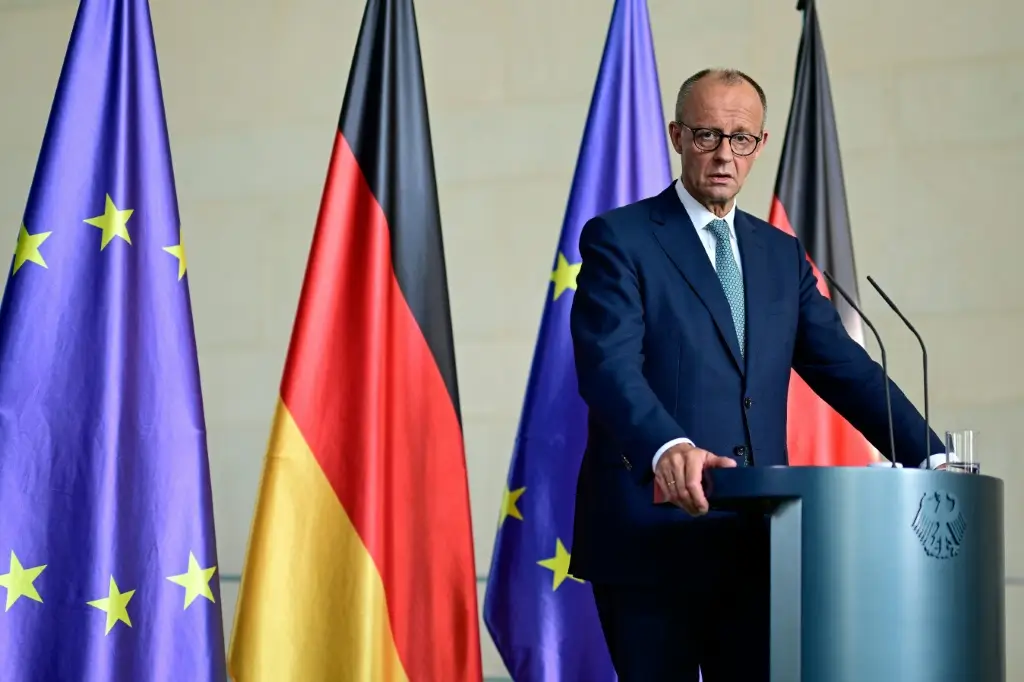
The German federal government has imposed a partial arms export ban on Israel in response to its intensified military operations in the Gaza Strip. Chancellor Friedrich Merz (CDU) announced on Friday that Germany will “until further notice, not approve any exports of military equipment that could be used in Gaza.”
This decision follows a recent escalation in Israeli military actions, including the approval of a new offensive plan by Israel’s security cabinet. The plan, presented by Prime Minister Benjamin Netanyahu, outlines the Israeli army’s intent to take control of Gaza City as part of its strategy to defeat Hamas. Netanyahu’s office also emphasized that humanitarian aid would be delivered to civilians in non-combat zones.
Merz acknowledged Israel’s right to defend itself against Hamas, stating: “The release of hostages and focused negotiations toward a ceasefire remain our highest priorities. Disarming Hamas is essential, and the group must not play any future role in Gaza.” However, the Chancellor voiced concerns that Israel’s latest military strategy makes it increasingly difficult for the German government to see a viable path toward achieving these objectives.
He underscored Germany’s deep concern for the ongoing suffering of Gaza’s civilian population. Merz stressed that the Israeli government, through its planned offensive, bears even greater responsibility for ensuring the provision of essential humanitarian aid. “Israel must guarantee full access for humanitarian deliveries, including those from UN organizations and other non-governmental institutions,” he said. He further urged Israel to improve humanitarian conditions in Gaza sustainably and to refrain from taking steps toward annexing the West Bank.
German Vice Chancellor and Finance Minister Lars Klingbeil (SPD) backed the decision, calling it “the right decision.” He emphasized the importance of balancing support for Israel with accountability. “The humanitarian suffering in Gaza is unbearable,” Klingbeil stated. “Our full solidarity lies with the State of Israel, but wrong actions must be named.”
Klingbeil highlighted that the current German government, a coalition of conservative CDU and social-democratic SPD parties formed in May, was taking this step for the first time as a sanction against Israel over its conduct in Gaza. According to data from mid-May, Germany had approved arms exports worth at least €485 million to Israel since the Hamas attacks on October 7, 2023.
The Vice Chancellor further demanded that humanitarian assistance be allowed into Gaza quickly and in full, stressing the Israeli government's responsibility for the civilian situation. He also warned against any developments that could undermine prospects for a two-state solution. “No further facts should be created that run counter to such a solution, neither in Gaza nor in the West Bank,” he said. Finally, Klingbeil reiterated that the release of all hostages held by Hamas and a ceasefire were matters of “utmost urgency.”